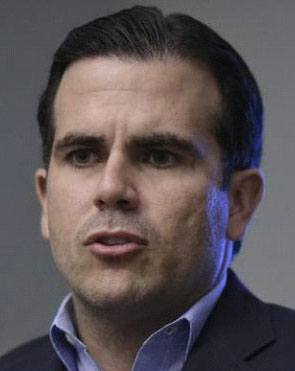WASHINGTON, (Reuters) – The federally appointed oversight board that manages Puerto Rico’s finances asked Congress yesterday for backing in its fight with the island’s governor over who should take charge of limping efforts to restore electric power after Hurricane Maria.
The board suggested that Congress make billions in federal aid expected to flow to Puerto Rico contingent on allowing it to name a new management team for the Puerto Rico Electric Power Authority (PREPA), the island’s bankrupt utility.
The idea, presented to lawmakers on the House Natural Resources Committee during a hearing, was quickly rebuked by a top aide to Puerto Rico Governor Ricardo Rossello, who said the board had overstepped its authority.
Power shortages affecting hospitals, schools and businesses have prompted as many as 100,000 Puerto Ricans to flee for the mainland – a level of migration that could further hobble the local economy. As of Monday – more than six weeks after the storm hit – 42 percent of the bankrupt island’s electricity had been restored.
Last month, the oversight board moved to appoint retired Air Force Colonel Noel Zamot to run PREPA, a move being fought in court by Rossello and bondholders.
Given the urgency of restoring electric power, Natalie Jaresko, the board’s executive director, asked lawmakers to clarify that the board has the authority to appoint Zamot, and suggested that federal aid be made contingent on it.
Jaresko said the price tag for rebuilding the storm-battered island – home to 3.4 million Americans – was as high as $100 billion.
Congress is expected to weigh another request for tens of billions in disaster aid for Puerto Rico and other hurricane-hit regions before the end of the year.
“We would appreciate a legislative affirmation of those , and/or conditioning of appropriations on those powers as you see fit,” Jaresko told lawmakers.
She also said federal loans provided to the cash-strapped island government to help it with payroll should include a “formalized mechanism” linking the liquidity relief to a new fiscal plan being developed by the board.
Christian Sobrino, a top aide to Rossello, said in an interview after the hearing that it was “beyond the pale” for Jaresko to ask for more power in the midst of an emergency.
“If a similar action or similar words were drawn in the case of Florida or Texas or Louisiana or any other state, there would be outrage,” Sobrino said, naming states that have recently experienced natural disasters.
Rossello is set to appear before the same panel on Nov. 14.
Committee Chairman Rob Bishop told reporters that he would not yet sketch out the steps Congress might take.
“I want to do that which I can do quickly and effectively so I can give them the clarification so they can go forward,” he said.
Lawmakers had planned to grill Ricardo Ramos, PREPA’s executive director, at the hearing. But on Monday night, the utility said he was too busy to attend.
The House committee has asked PREPA to explain the circumstances surrounding the awarding of a $300 million contract to Whitefish Energy Holdings, a small Montana company that had been hired to rebuild the island’s power grid.
The contract has since been terminated.
While PREPA officials were not present, lawmakers nonetheless lashed out against the utility, with some calling for ending its monopoly on the island.
Calling it “a vehicle for political patronage for decades,” Democratic Representative Darren Soto said: “It has exhibited gross incompetence by overseeing a declining grid, approved a no-bid insider Whitefish contract and it’s been mired in debt. PREPA is failing the Puerto Rican people.”
Soto, who represents a central Florida district with a large Puerto Rican population, called on Puerto Rican authorities to work with the oversight board “to break up PREPA’s failing monopoly” and establish regional entities to provide electricity.
Jaresko weighed in, prompted by Soto, saying, “a state-owned monopoly does not work.”

